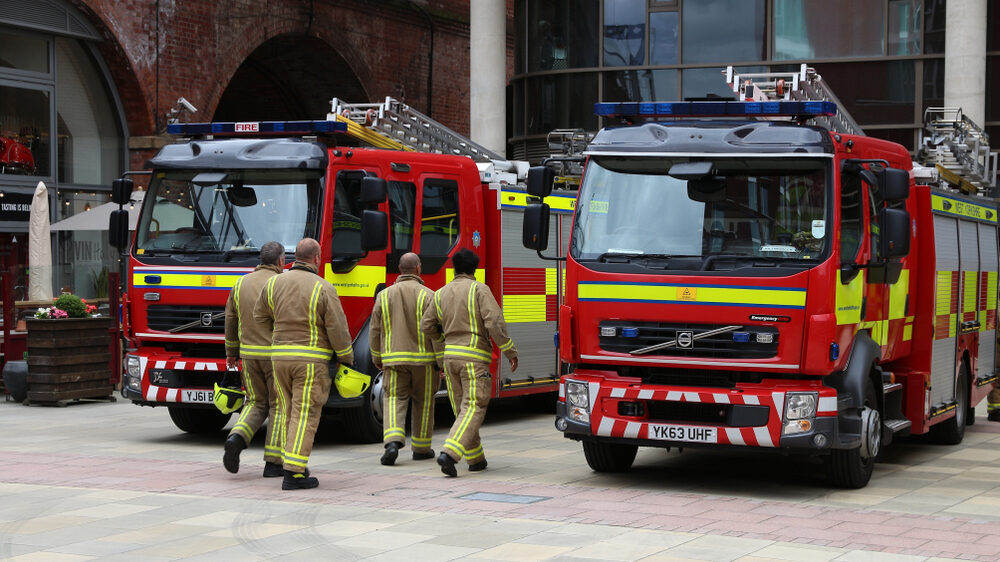Cambridgeshire firefighters voice concerns over reduced fire crews
- October 5, 2023
- 9:34 am


Iain Hoey
Share this content
Fire crews size reduction sparks protest
Cambridgeshire firefighters assembled outside the Cambridgeshire Fire Authority’s meeting on October 4th.
Their protest was in response to what they see as a concerning reduction in the size of fire crews.
Since the start of 2023, the Cambridgeshire Fire and Rescue Service (CFRS) has been deploying on-call firefighters in crews of just three.
However, for situations where lives are in potential danger, a team of at least five firefighters is typically advised.
Fire Brigades Union opposes smaller fire crews
The Fire Brigades Union (FBU) has been vocal in their criticism of these smaller teams.
An impressive 88% of their on-call members in the region have put their signatures on a letter denouncing this new approach.
A three-member crew consists of one driver, one officer in charge, and one additional firefighter.
Training typically prepares firefighters to operate in teams of four or five, with roles designated within these more extensive units.
While CFRS claims that smaller teams can reach incidents more promptly, no concrete data confirms that such teams reduce overall response times.
This is because a three-person crew, upon reaching a significant incident, must await backup before taking substantial action.
Mark Harriss, FBU Cambridgeshire brigade secretary, noted: “Every second counts in an emergency, and fires can escalate quickly: Cambridgeshire Fire and Rescue Service is putting lives at risk by dispatching teams that cannot execute rescues securely.
“When a house is ablaze, one expects an adequately equipped fire engine. It’s disheartening for only three firefighters to appear and then have to wait for reinforcements.
“The root of these cutbacks is a recruitment and retention crisis. Increasing the danger and stress of the job will further exacerbate the situation.
“It’s crucial for fire service employers to abandon this perilous approach and staff our service correctly.”
Adding to this sentiment, Callum Hodgkin, FBU Cambridgeshire brigade organiser, stated: “Firefighters commit to defending properties and preserving lives, not to be mere spectators as structures are consumed by flames.
“Fires are unpredictable; one can’t gauge the severity until on-site. A trio is ill-equipped to handle grave incidents, such as residential fires, compelling them to await another team’s arrival.
“These firefighters confront a harrowing dilemma: to stay outside or jeopardise their careers and lives by venturing in. We take immense pride in serving our communities and are compelled by an ethical responsibility to save lives.
“Persisting with this policy will inevitably culminate in a catastrophe. No firefighter should ever find themselves in such a predicament.”
IFSJ Comment
The recent changes in fire crew size in Cambridgeshire brings to light the broader challenges faced by many fire services globally.
Ensuring efficient response times must be balanced against the safety and efficacy of the crews dispatched.
While faster arrival at the scene is a commendable goal, it should not come at the expense of the firefighters’ ability to effectively and safely manage the situation.
The widespread concern expressed by members of the Fire Brigades Union underscores the potential implications of such changes, not just for the safety of the public, but for the firefighters themselves.
As stakeholders in the wider fire and safety community, it’s crucial for us to monitor these developments and assess their impacts on best practices in emergency response.

